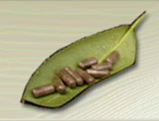 Loading... Please wait...
Loading... Please wait...Blog - lifestyle
Factors that Affect Our Health
Posted by Dr. Vasant Lad , The Ayurvedic Institute , 1994 on 8th Dec 2009
Ayurveda is a way of healing and a way of life that always takes into consideration the whole person. According to the teachings of Ayurveda, every aspect of your life contributes to your overall health. Poor health seldom has a simple or single cause. This chapter will cover just a few of the things that may affect one’s well-being. Some factors will respond to changes, like diet, and some are beyond individual control, like the weather. With the latter, there are actions that can be taken to reduce or eliminate the impact. Of course, it is not possible or wise to try to change everything at once. Ayurvedic literature states slow and steady is the best route to successful change. Most people find that diet is the best place to begin an Ayurvedic lifestyle.
The Doshas
One’s sense of well-being reflects the inner state of health. Good health is the maintenance of one’s unique combination of the doshas, a balanced condition of agni, of the seven body tissues, of the three waste systems (urine, sweat and feces), as well as balance in the mind, senses and consciousness. It is equally important to one’s well-being to have love, happiness and clarity in daily living.
Doshic imbalance governs internal biochemical changes that will eventually lead to either high or low metabolism.
Pitta dosha governs all physical and biochemical changes that take place within the body. Through this process foodstuffs are transformed into energy, heat and vitality. Pitta performs these functions throughout one’s life, but is especially prominent during the adult years. All these activities of pitta depend upon “digestive fire” or agni. Poor agni means poor health. Wrong diet such as hot spicy foods, wrong life style such as living in a hot climate and repressed emotions can alter the normal function of pitta.
Anabolism is the process of building up of the body. It is the repair, growth and creation of new cells. This is managed by kapha and is most active in the baby, child and teen years. Kapha dosha can be disturbed by excessive intake of dairy, cold and oily foods.
Catabolism is the destructive, but necessary, stage of metabolism. Larger molecules are broken down into smaller ones. This molecular death is governed by vata dosha and is most active in old age. Repeated intake of vata-provoking food, such as salads and popcorn, and over-exercising can escalate vata and disturb health.
Improper Eating Habits
1 Overeating
2 Eating soon after a full meal
3 Too much water or no water during a meal
4 Drinking very chilled water during a meal or, indeed, anytime
5 Eating when constipated
6 Eating at the wrong time of day–either too early or too late
7 Eating too much heavy food or too little light food
8 Drinking fruit juice or eating fruit with a meal
9 Eating without real hunger
10 Emotional eating
11 Eating incompatible food combinations
12 Snacking in between meals
Time of Day and Time of Season
The body’s biological clock is regulated by the doshas. The time of maximum activity of kapha is during early morning and early evening, 6-10 a.m. and 6-10 p.m. The pitta period is during midday and midnight, 10 a.m.-2 p.m. and 10 p.m.-2 a.m., while vata hours are dawn and dusk, 2-6 a.m. and 2-6 p.m. Thus a pitta-type disease, like ulcers, may cause the most discomfort late at night in the pitta time of the bio-clock. The reverse is also true, in the sense that experiencing a sharp pain in the stomach region late at night may signify ulcers or another pitta-type aggravation.
After food is ingested, it passes through various stages of digestion, each one involving a specific dosha. To digest one major meal takes 6 to 8 hours. For approximately two-and-a-half hours after eating food, the dominant dosha is kapha, which is associated with the stomach. Roughly two-and-a-half hours later, the pitta dosha is dominant. This period and doshaare associated with the small intestine, where bile and intestinal enzymes are at work. Ultimately, the digestion is completed in the colon, the predominant site of vata, where absorption and elimination occurs. This stage is a time of vata domination. Gas, a quality of vata, will often occur here if food is not properly digested.
The seasons have attributes much like the three doshasand can cause aggravation and imbalance. For instance, the summer is hot, sharp and bright which provokes pitta. So pitta. diseases like sunburn, hot flashes, exhaustion, acne and diarrhea may occur. Psychologically, people may respond to trifles with anger and hate.
Autumn is dry, light, cold, clear and windy, all aggravating qualities to vata dosha. Aches and pains in the joints and muscles may materialize, and the mind may become fearful, anxious and lonely.
The heavy, cold, dampness of winter can provoke kapha , leading to cough, cold and sinus congestion. Attachment and greed may develop in the mind when kapha is aggravated.
The watery quality of spring also provokes kapha and some people will tend to have spring colds, allergies and respiratory ailments at this time.
The change from one season to another may require shifting one’s diet for a period of time to restore balance.
Getting The Right Amount of Exercise
Exercise, too, should be in harmony with the specific constitution. Kapha individuals can perform the most strenuous exercise, pitta a medium amount and vata the gentlest. Aerobics, swimming, fast walking and biking are all good exercise for pitta and kapha but not for vata. Vata tends to love jumping and jogging, but exercises like yoga, stretching and Tai Chi are better choices. For people with serious vataand pitta disorders and for those whose age is over 80 or under 10, exercise should be very gentle. Walking is probably the best exercise of all for any constitution.
Even for a healthy individual, Ayurveda suggests a workout that is one-half of one’s capacity, just until sweat appears on the forehead, under the arms and along the spinal column. This amount of exercise stimulates gastric fire, improves digestion and relieves constipation, as well as inducing relaxation and sound sleep. Sweating helps to eliminate toxins, reduce fat and make you feel good. Over-exercising may cause dehydration and breathlessness, even chest pain and muscle aches, eventually leading to arthritis, sciatica or heart conditions.
Choosing a Balanced Lifestyle
Lifestyle has its own definite rhythm in each person’s life. Waking too early or late, irregular food habits, staying up late, job stress, untimely bowel movements and suppression of natural urges are a few habits that can unsettle one. Regularity in sleeping, waking, eating and elimination, indeed following a daily routine, brings discipline and helps to maintain the integrity of the doshas and good health.
Ayurveda has some definite suggestions about the role of sex in one’s life. Sexual activity should be avoided after heavy meals, during hunger or in anger, for this could be detrimental to health. The right amount and right time is important. Vata should not make love more than once or, at most, twice a month, pitta once every two weeks and kapha two to three times a week. The best time for making love is between 10 and 11 p.m. Too frequent love-making reduces ojas, the vital energy, and leaves the person weak and open to diseases. Ojas should be restored after each time through massage and nourishing drinks, like almond milk.
Relationships and Emotions
Daily life is relationships, both the relationships we have with one another and the one we have with ourselves. Ideally, clarity, compassion and love should characterize these relationships. It is often easier to love and respect others than one’s self. Relationships are mirrors to use for self-learning, enquiry and investigation. Through that very learning, radical transformation of one’s life can take place. If our relationships are unclear, confusion and conflict will affect our well-being.
Emotions, like anger, fear or anxiety, arise from reactions to our daily relationships. These reactions appear due to inattention to the moment. Each person needs to pay total attention to his or her thoughts, feelings and emotions. If they don’t, these will be undigested and just as capable of poisoning the body as bad food combinations are. Each emotion is a bio-chemical response to a challenge and may provoke the doshas. Fear and anxiety will provoke vata, anger and hate upset pitta balance and attachment and greed will aggravate kapha .
Meditation and Well-Being
Meditation plays a most important part in daily life and is a powerful tool to help maintain health. While the dictionary says that the term meditation means to think, to ponder, to go through and examine, this definition does not impart the profound meaning of the word at all. Mediation is an action of clear perception, an observation with total awareness and without any conclusion, judgement or criticism. Meditation demands that you be utterly one with the moment. In this oneness, there is radical change in one’s psyche. In this moment-to-moment awareness, there is a cleansing of the body, mind and consciousness. This will bring you to that state of peace which is joy, bliss and enlightenment. At this point, life becomes a movement of spontaneous meditation.















